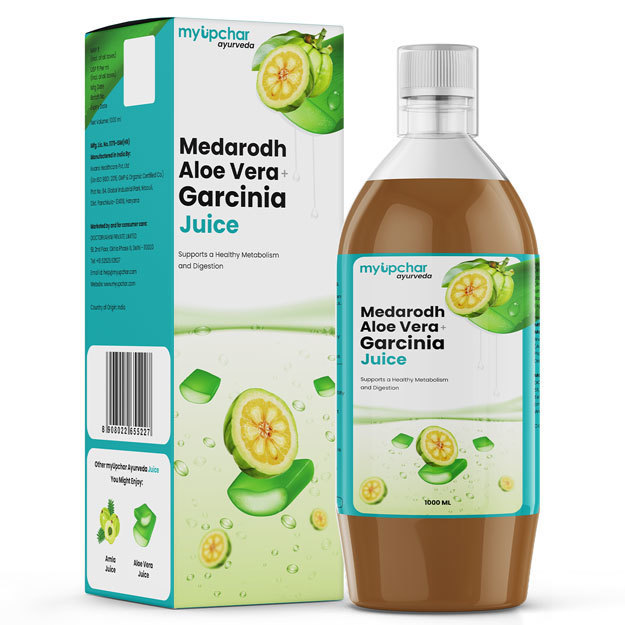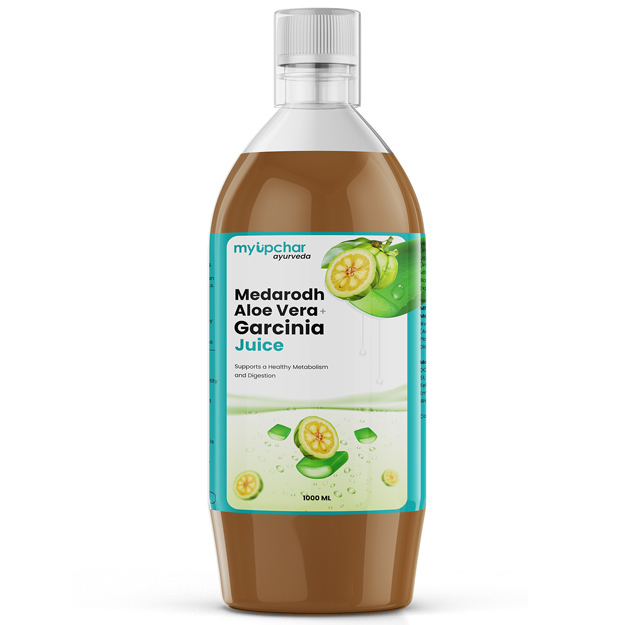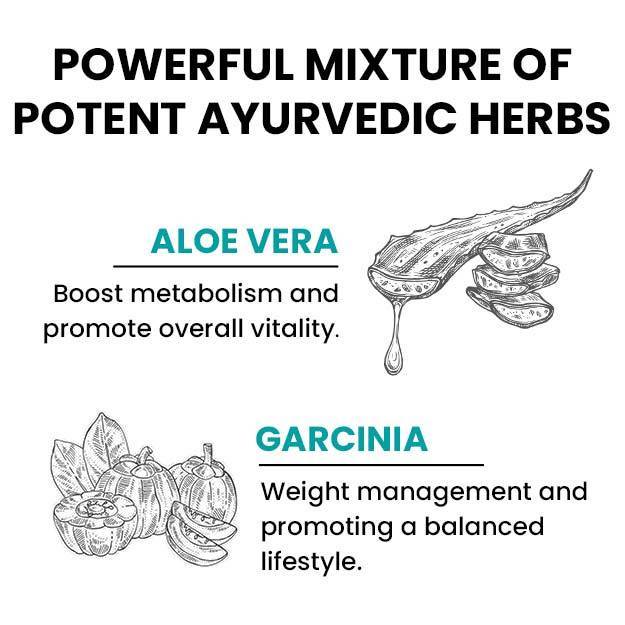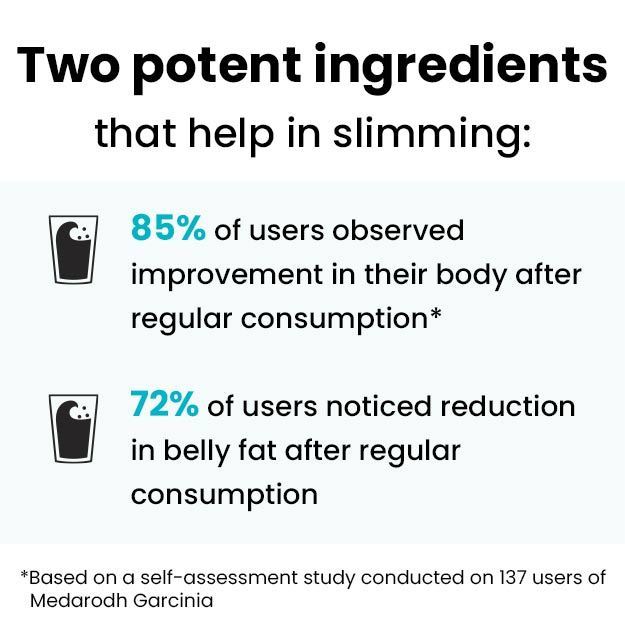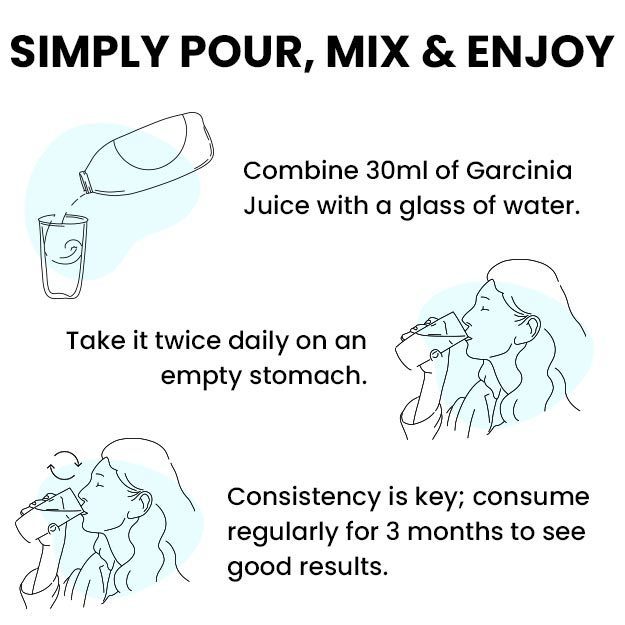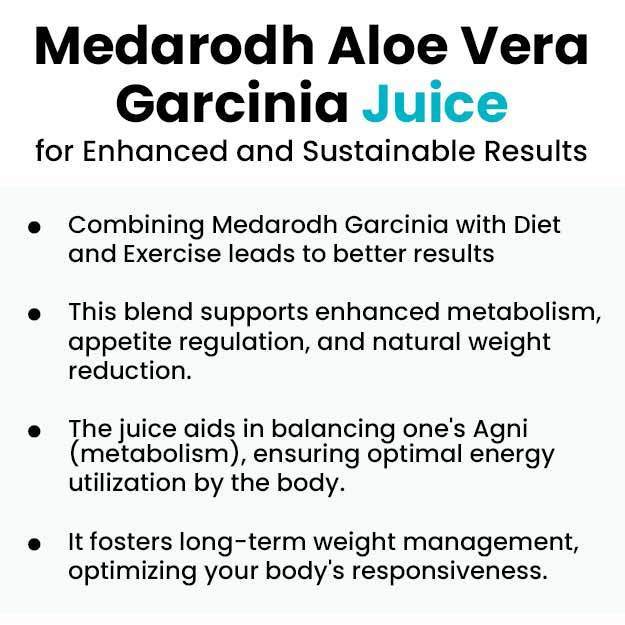Carbohydrates are present in almost all the foods you eat every day, ranging from healthy foods like fruits and vegetables to the packet of fries or chips or your favourite slice of pizza. Carbohydrates are the major source of energy for your body, and contrary to the ‘bad reputation’ are quite essential for your diet and energy needs.
They constitute 45 to 65% of a balanced diet and provide equivalent calories for optimal daily functioning of the body. However, this amount varies as per your body weight and specific requirements, that is, you need more carbohydrates if you perform intense physical exercise or workouts when compared to a sedentary individual. But, choosing the right type of carbohydrate for achieving its health benefits is more important than the amount consumed.
Let’s have a look at some of the food sources and benefits of carbohydrates and comprehend which ones are the healthiest for your daily diet.
- Carbohydrates food
- Benefits of carbohydrates
- Carbohydrates and weight loss
- Side effects of carbohydrates
Carbohydrates food
Following are some healthy and unhealthy sources of carbohydrates, which will act as a guide in helping you choose the right amount for meeting daily energy needs. Experts recommended that you eat around 225 or 325 grams of healthy carbs each day, depending on your levels of physical activity. Consult your doctor and fitness expert to know your best requirements.
Healthy sources of carbohydrates
- Fruits like apple, mango, banana, watermelon, berries, peach, melons (contain fructose)
- Fruit juices
- Vegetables like potato, sweet potato, broccoli, celery, cauliflower, cabbage, bell peppers, zucchini, radish, mushroom
- Whole grains like oats, muesli, quinoa, brown rice, popcorn (with lesser salt and butter), cereals Read more: White rice or brown rice, which is healthier?
- Legumes like beans, peas, lentils
- Sprouted grains
- Whole wheat bread, biscuits and other products
- Chapati or roti made out of whole wheat, mixed flour or other flours like barley, millets, etc
- Dairy products like milk (contains lactose), cheese, yogurt, dahi
- Lean meats and chicken
- Black beans, kidney beans, split beans
- Whole wheat pasta or sandwiches
- Dietary fibres present in whole grains
- Nuts and seeds
Unhealthy sources of carbohydrates
Unhealthy carbohydrates are present in all the junk foods, fast foods and sugary products consumed by you like:
- Burger
- Pizza
- Chicken nuggets
- A packet of fries or chips
- Noodles
- White pasta
- White bread and white bread products
- White rice
- Refined flour (maida)
- Bakery products
- Hotdogs
- Sweets like doughnuts, muffins, cakes, pastries, macaroons, sweet pies, white chocolates
- Biscuits
- Packaged foods like cereals
- Red meats
- Any foods containing sugar
While you can occasionally treat on the unhealthy options, it is best to refrain from their daily consumption, since this can cause weight gain and obesity in the long run. Instead, choose more form the healthy lot and opt for complex sources like whole grains, fruits and vegetables, which have an amalgamation of nutrients present in them. Simple carbohydrates like sugars provide empty calories and offer no nutritional benefits.
Benefits of carbohydrates
The major function of carbohydrates is that they provide you with the energy required for performing daily activities. They have several other benefits for your digestive and overall health which will be discussed in this section.
- Good source of energy: One gram of carbohydrate gives about 4 calories and it is recommended to derive 900 to 1300 calories of your total 2000 calorie diet from carbs. This is because they make a quick source of energy which is needed for optimal organ function.
- Prevents ketosis: Consuming a low-carb diet makes your body to rely on fats and proteins for energy, which can cause ketone breath and a bad taste in the mouth. Also, not all organs and cells are able to utilise fats and proteins as sources of glucose.
- Promotes weight loss: Consumption of complex carbs improve satiety and help reach your weight loss goals quickly. For the best results, opt for non-bread alternatives such as quinoa and salads and snack on whole fruits instead of juices or jams.
- Benefits for athletes: Although proteins are essential for muscle building, consumption of carbohydrates is essential to provide a steady energy source for athletes, especially during intense training sessions. It provides them with a sufficient amount of glucose and prevents muscle fatigue.
- Improves digestion: Complex carbohydrates or fibres help in the proper digestion of food by modulation of gut microflora. It also prevents constipation and relieves piles symptoms.
Carbohydrates as a source of energy
Carbohydrates are the main source of energy in the body. Dietary carbohydrates are converted into glucose, which is further broken down to release energy. This energy is utilised for daily activities, like breathing, walking and other functioning. It is also required for physical activities and exercise.
Each gram of carbohydrates provides you with 4 calories, which are used up when your body exercises. An excess of glucose is stored in the form of glycogen in the liver, which is used by your body cells in emergency states like starvation.
Other than providing you with energy, glucose is essentially required by most of the vital organs of the body, including the brain and the heart. These organs cannot function without glucose. In the heart, glucose controls the contraction and relaxation of heart muscles. It also controls the functioning of other muscles in the body and is also essential for the developing red blood cells (RBCs).
Read more: Glycemic index of Indian foods
So, you must consume enough carbohydrates in your diet for optimal health. If you consume roughly around 2000 daily calories, it is recommended to derive 900 to 1300 from complex carbohydrates. Doing so will also help in ensuring a healthy sleep cycle by reducing the duration of onset of sleep and regulating circadian rhythms (body clocks responsible for sleep, feeding and other functions)
Read more: Sleep chart by age and gender
Carbohydrates and metabolism
As already discussed, carbohydrates are required by all the cells of your body in the form of glucose, an excess of which is stored as glycogen, and converted into energy as and when required by the body. Does this mean that you can stop having daily carbohydrates and rely on the glycogen stores of your body? Certainly not.
Your body cannot store all the carbohydrate it gets in the form of glycogen, there is a very small limit to the stores. Usually, the stored glycogen is just enough to meet half a day’s requirement of glucose. Now, since glucose is essential for most of the cells of your body, including nerve cells and your brain, you cannot do away without consuming the desired amount of carbohydrates each day. It is recommended to consume at least 50 to 100 grams of carbohydrates daily to ensure an optimal functioning.
Carbohydrates prevent ketosis
Ketosis is a metabolic state of the body in which an excess of ketone bodies are formed beyond a level that can be excreted. This raises the pH levels of the blood causing ketoacidosis, an emergency situation that can lead to coma and death of the individual.
The primary cause of ketosis in the body is excessively low levels of carbohydrates, due to which alternate mechanisms of the body are used for energy production like fat metabolism or metabolism of proteins. Ketosis is characterised by excessive thirst, frequent urination, confusion, dry mouth with a fruity smell, also more serious symptoms like rapid breathing and coma occur.
Ketone bodies are formed as a byproduct of fat metabolism, which are excreted in smaller amounts and are not immediately harmful. While some of the body cells can utilise ketone bodies for their glucose needs, including the brain; the liver and developing RBCs cannot. This leads to an excess of ketone bodies causing ketoacidosis. Ketoacidosis is more likely to occur in diabetics, suffering from either of type 1 or type 2 diabetes.
Read more: Ketone bodies in urine test
While ketoacidosis is a serious, life-threatening condition, a prolonged low carb diet can have milder side-effects like ketone breath, which gives your mouth a foul smell and taste due to the presence of ammonia in the breath (as a byproduct of protein metabolism). You can avoid this by taking care of the carbohydrate content of your diet.
Read more: Halitosis causes
Carbohydrates for digestion
Carbohydrates, particularly fibres play a major role in the digestion of food. They help in forming the bulk of faeces. Dietary insoluble fibre (found in wheat bran, skins of fruits and vegetables, rice husk and whole grains) are crucial for digestive health and help in preventing constipation or indigestion of food. Other than this, dietary fibre is also associated with a lower risk of certain types of cancer.
Read more: How to improve digestion
Carbohydrates for athletes
Individuals with higher energy demands such as athletes and bodybuilders require more carbohydrates for meeting their daily energy and exercise needs. While protein and fats are an important component of their diet; their major energy requirements, that is around 60 to 70% must be met by carbohydrates. In their diet, proteins constitute just 12 to 15% and almost the same amount for fats. Even higher percentage of carbohydrates is required during the phases of intense preparation, heavy training and ongoing competitions to meet higher body demands of athletes.
Low energy during physical exercise can hamper health in different ways causing hormonal and metabolic disturbances. Low energy and nutrition may even affect the immune functioning of athletes. So, researchers have suggested increasing the daily carbohydrate dosage in players to enable sufficient recovery and rest in them.
Read more: Foods to build muscle mass
Although protein is required for building muscle mass in athletes and bodybuilders, carbohydrates are essential in maintaining this mass. In a deficiency of carbohydrates, when the body utilises proteins for energy, the muscle mass is known to deplete causing fatigue and exertion.
Other than this, in states of limited daily consumption of carbohydrates, when the athletes rely on stored glycogen as a source of energy, muscle pain and muscle cramps occur due to the production of lactic acid in muscles.
Periodically low dietary carbohydrates will limit the production of glycogen in the body causing a state of chronic fatigue in athletes.
To avoid this, athletes and trainers are recommended to consume enough dietary carbohydrates to maintain their energy levels and to enhance glycogen synthesis which will be required during these sessions.
It is most essential to consume a carbohydrate-rich diet immediately after a workout session, since maximum synthesis of glucose occurs during this phase. A carbohydrate-rich diet following a workout session will help to replenish the body stores for future needs.
Carbohydrates for heart and kidney
Carbohydrates are a readily available source of energy packed with lesser calories than fats. Fats contain more than double of calories in a gram (9 calories). Individuals on a low-carb diet tend to increase the levels of proteins and fats to maintain their energy levels, as seen in the popular keto diet. This diet promotes the process of ketosis for fat burning.
While this may aid in weight loss, a diet too rich in calories and fats, particularly those derived from saturated fats is likely to raise blood cholesterol levels. This has a damaging effect on your heart with an increased risk of atherosclerosis and other cardiovascular disorders including heart attack is associated with it. On the other hand, a diet rich in healthy carbs is known to lower the risk of cardiac disorders.
A high protein diet is known to worsen kidney function because the body cannot digest all the byproducts from protein metabolism. A low carbohydrate diet causing ketosis is also hazardous for diabetics, since it can cause severe hypoglycemia in them, which can prove to be fatal.
Read more: Treatment of Acute Kidney Failure
Carbohydrates and weight loss
Contrary to the popular belief, it has been demonstrated that having carbohydrates may not hamper your weight loss goals. In fact, carbohydrates may help to enhance the process of weight loss. They will make you feel fuller for long as they offer better satiety than equal amounts of proteins or other nutrients.
But, it all depends on the kind of carbohydrates you opt for. If you opt for complex healthy carbohydrates, your weight loss goal is likely to be achieved quicker. In turn, your journey will be smoother will lesser bouts of fatigue, tiredness and low energy. This will help you in exercising efficiently, which will further aid your process. Including carbohydrates in your diet guarantees a more sustainable and achievable weight loss than their restriction. Here is a guide on how you can include healthy carbohydrates in your diet:
- Have carbohydrates for breakfast. Opt for healthy carbohydrates like oats and cereals (not in the packaged form) since they will help you feel full during the day.
- Eat healthy carbohydrates like roti or whole wheat bread for lunch with an ample serving of vegetables.
- Opt for healthier vegetables like beans, peas, legumes, sprouts or broccoli.
- It is better to opt for non-bread alternatives like quinoa or salads for your carbohydrate needs.
- Snack on whole fruits instead of packaged juices, which may often contain added sugars.
Read more: Diet chart for weight loss
Side effects of carbohydrates
While carbohydrates are good for your overall health, an excess of them, particularly simple carbohydrates or sugars can pose the following problems:
- Weight gain
- Obesity
- Risk of cardiovascular disorders, high blood pressure and stroke
- Increased risk of certain types of cancers
- Increased glycemic load, which can be harmful for diabetics
You must be cautious while choosing the right kind of carbohydrates for your diet, especially if you are a diabetic.
Find Nutritionist in cities
Doctors for Carbohydrates: Foods, Sources, Benefits and Side effects

Dr. Dhanamjaya D
Nutritionist
16 Years of Experience

Dt. Surbhi Upadhyay
Nutritionist
3 Years of Experience

Dt. Manjari Purwar
Nutritionist
11 Years of Experience

Dt. Akanksha Mishra
Nutritionist
8 Years of Experience
References
- MedlinePlus Medical Encyclopedia: US National Library of Medicine; Carbohydrates
- Sugar Research Advisory Service. THE BASICS. [Internet]
- American Diabetes Association. Which Foods Have Carbs?. Arlington [Internet]
- National Institute of Diabetes and Digestive and Kidney Diseases [internet]: US Department of Health and Human Services; Carbohydrate Counting & Diabetes.
- Jéquier E. Carbohydrates as a source of energy. Am J Clin Nutr. 1994 Mar;59(3 Suppl):682S-685S. PMID: 8116550
- Janice Hermann. Carbohydrates in the Diet. Division of Agricultural Sciences and Natural Resources. Oklahoma State University
- Monica Hunsberger et al. Dietary Carbohydrate and Nocturnal Sleep Duration in Relation to Children’s BMI: Findings from the IDEFICS Study in Eight European Countries. Nutrients. 2015 Dec; 7(12): 10223–10236. PMID: 26670249
- Afaghi A, O'Connor H, Chow CM. High-glycemic-index carbohydrate meals shorten sleep onset. Am J Clin Nutr. 2007 Feb;85(2):426-30. PMID: 17284739
- Williams C. Macronutrients and performance. J Sports Sci. 1995 Summer;13 Spec No:S1-10. PMID: 8897314
- Burke LM, Loucks AB, Broad N. Energy and carbohydrate for training and recovery.. J Sports Sci. 2006 Jul;24(7):675-85. Energy and carbohydrate for training and recovery.
- Burke LM, Kiens B, Ivy JL. Carbohydrates and fat for training and recovery. J Sports Sci. 2004 Jan;22(1):15-30. PMID: 14971430
- Costill DL. Carbohydrate for athletic training and performance. Bol Asoc Med P R. 1991 Aug;83(8):350-3. PMID: 1816789
- Better health channel. Department of Health and Human Services [internet]. State government of Victoria; Fibre in food
- National Health Service [Internet]. UK; The truth about carbs.
- Joanne Slavin, Justin Carlson. Carbohydrates. Adv Nutr. 2014 Nov; 5(6): 760–761. PMID: 25398736
- Better health channel. Department of Health and Human Services [internet]. State government of Victoria; Weight loss and carbohydrates
- Health Harvard Publishing. Harvard Medical School [Internet]. Carbohydrates. Harvard University, Cambridge, Massachusetts.
- Masood W, Uppaluri KR. Ketogenic Diet. [Updated 2019 Mar 21]. In: StatPearls [Internet]. Treasure Island (FL): StatPearls Publishing; 2019 Jan-





